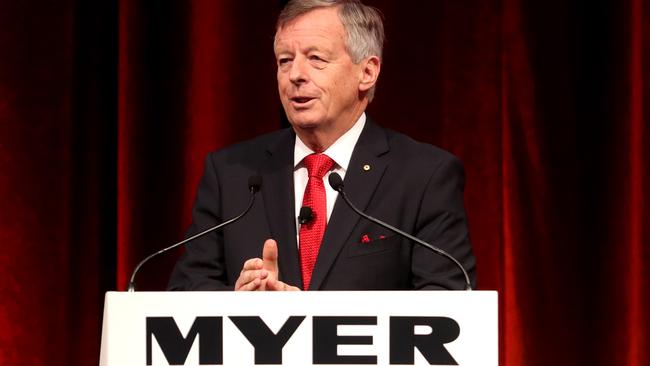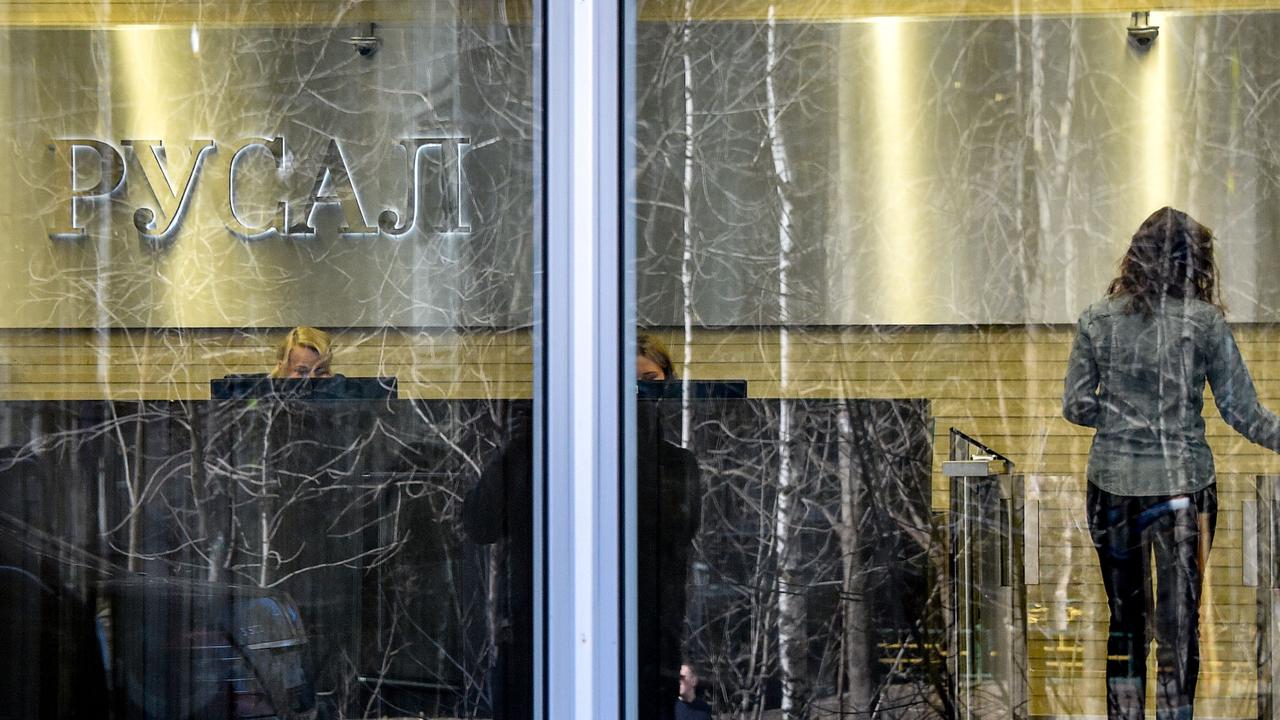Myer replaces chairman ahead of schedule in order to placate Solomon Lew
Myer’s ahead-of-schedule chair switch is clearly aimed at relieving tensions with its major shareholder.

Last month, Myer announced the appointment of veteran company director Garry Hounsell as a non-executive director and deputy chair and outlined a plan for him to succeed Paul McClintock as chairman at some point beyond next month’s annual meeting. That timetable was designed to enable a transition and handover period for the outgoing and incoming chairs.
With Lew, supported by other major shareholders, threatening to do something at the AGM — Premier hasn’t made its intentions clear but did requisition a register of Myer’s shareholders, hinting at a campaign for their support — pressing ahead with the proposed orderly transition risked an unpleasant and disruptive, even destructive, experience for Myer, McClintock and, perhaps, Hounsell.
So today, Myer announced that McClintock, chairman for the past five years, would retire at the AGM and (assuming shareholders ratify his appointment to the board) Hounsell would become chairman.
Whether not that defuses the potential for a Lew assault remains to be seen. Last month Lew launched an extraordinary attack on Myer and its performance, describing it as a “basket case,’’ saying he was ‘’bitterly disappointed’’ with the group, criticising its decision to create floors in some stores that sell discounted stock and targeting the lack of retailing experience within the boardroom.
Since Premier acquired its 10.8 per cent stake in Myer last March, its share price has fallen about 40 per cent. Lew has indicated he felt he had been misled by the upbeat nature of Myer’s statements about its performance and prospects before the shareholding.
There may be an element of wounded pride to the emotive nature of Lew’s assault on Myer and the veiled threat to use the AGM to derail the group’s succession plan.
Leaked emails suggest Lew was affronted that McClintock was prepared to give him only a 30 minute one-on-one (albeit with a Myer “observer” present) ahead of this month’s board meeting, although a full and reasonably open-ended meeting with the entire board had also been proffered by McClintock.
The question of the extent to which Myer engages with Premier is a complex and sensitive one, given that both Premier and Lew’s private companies are major suppliers — perhaps, combined, the biggest supplier — to the department store group as well as competitors.
Myer needs to engage with its biggest shareholder and supplier, and its chief executive Richard Umbers has made overtures to Premier to discuss how they might co-operate, but somehow he also needs to keep the engagement at arms-length to observe the governance niceties.
Whether the appointment of Hounsell as chairman helps defuse the friction with Premier or causes Premier to focus its sights on opposing his election at the AGM is something Lew and his advisers will no doubt debate.
It is less likely that Myer’s institutional shareholders would join in an attempt to vote down Hounsell’s appointment than would have been the case if the campaign was against a relatively long-serving incumbent.
While Hounsell doesn’t have any direct retail experience as an executive, he does have relevant boardroom experience of major and successful corporate turnarounds, most notably at Qantas and Treasury Wine Estates. There aren’t that many chairs of major public companies that have operational-level experience in the industries of the companies they chair.
There’s also an interesting question as to whether a background in traditional retailing is particularly relevant or useful in the circumstances now facing physical retailers, with the old retailing model broken and a new and more complex multichannel model still under development.
While Lew has been critical of Myer’s current offer, its previous strategies — traditional retailing strategies — had failed it.
Umbers, while lumbered with a host of legacy issues including a lot of long-term leases for stores he’d rather exit, is trying to execute a sophisticated but complicated plan that involves varying Myer’s offer according to the demographics and preferences of its different catchment areas.
He’s trying to do that in the context of a very difficult environment for discretionary retail, which Lew would appreciate given that, excepting Smiggle and Peter Alexander, his own apparel-focused brands have encountered the same challenges.
Lew has, as has been noted, conspicuously avoided criticising Umbers personally even though he has criticised some of the decisions that Umbers and his team have implemented.
What Lew’s ultimate ambitions towards Myer might be remain something of a mystery. He has said he wants — and has — a “seat at the table” but whether that’s just the opportunity to put views to Myer or something more substantial and formal isn’t clear to Myer or anyone outside Premier at this point.
The conflicts of interest, and the current relatively modest size of Premier’s shareholding, would make it difficult for Myer to offer Premier any level of board representation but Hounsell will have a fresh opportunity to make contact with Lew and give him an opportunity to share his views and, perhaps, aspirations. Lew, as McClintock discovered, isn’t someone who can be ignored.
The last thing Hounsell will want, given Myer is halfway through (and somewhat behind the schedule on) a five-year turnaround plan, is a protracted, confrontational and destabilising stoush with Lew, who’s something of a veteran of those kinds of bitter and long-running contests. Equally, he can’t concede too much influence to a 10.8 per cent shareholder that is also a supplier and competitor.
His elevation to Myer’s chair is surely going to test his temperament, tactical nous and negotiating skills.




Myer has bowed to the inevitable and clearly hopes to defuse some of the tension and avoid a damaging confrontation with its major shareholder, Solomon Lew’s Premier Investments, by replacing its chairman ahead of its planned schedule.